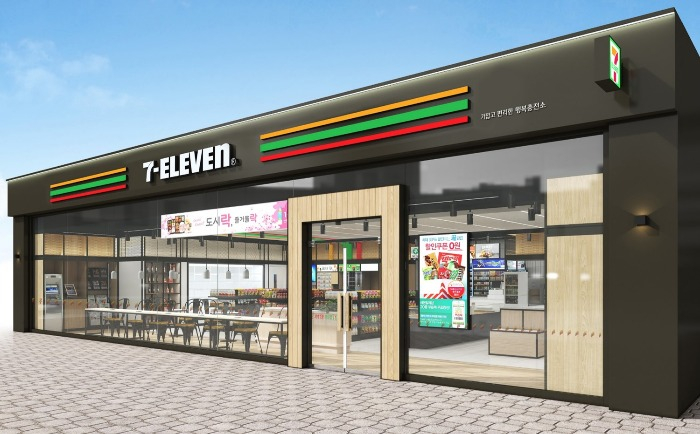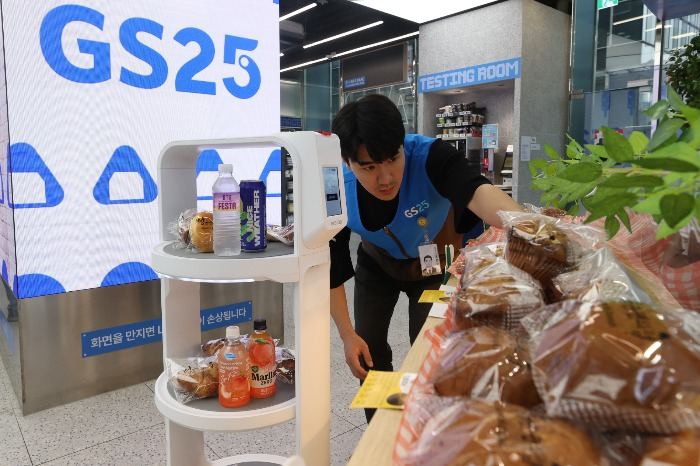Retail
7-Eleven’s operator Korea Seven hit by rating cut
The purchase of Ministop Korea worsened its financial conditions and created little synergy, the rating agency says
By Jun 27, 2023 (Gmt+09:00)
1
Min read
Most Read
LG Chem to sell water filter business to Glenwood PE for $692 million


Kyobo Life poised to buy Japan’s SBI Group-owned savings bank


KT&G eyes overseas M&A after rejecting activist fund's offer


StockX in merger talks with Naver’s online reseller Kream


Mirae Asset to be named Korea Post’s core real estate fund operator



The credit rating of Korea Seven Co., which runs the South Korean operations of the convenience store chain 7-Eleven, was downgraded to its lowest level after it acquired the domestic operations of Ministop for 322.5 billion won ($250 million) in 2022.
Korea Investors Service Inc. on Monday cut Korea Seven’s rating by one notch to A with a stable outlook, from A plus with a negative outlook.
It is the lowest rating ever for the company, a unit of Lotte Corp.
The rating agency, under Moody’s Investors Service, said the purchase of Ministop Korea has deteriorated Korea Seven’s financial health and there is little hope of its financial conditions improving in the near term.
In the first quarter of this year, Korea Seven reported an operating loss of 32.3 billion won on a consolidated basis, four times more than the previous year’s shortfall.
Its net borrowings ballooned to 890.2 billion won by the end of March, compared to 61.6 billion won at the end of 2018.

The rating agency also noted that combining the domestic operations of 7-Eleven and Ministop has barely created synergy in the fiercely competitive market, where GS25 and CU are vying for the top position.
Latecomer E-Mart 24 Inc. is making an aggressive push, threatening third-ranked 7-Eleven.
Mired by heavy debt, Korea Seven has held off on public bond issues since September 2021. Instead, it sold privately placed bonds to raise 20 billion won in two-year notes in 2022 and 90 billion won in three-year bonds last week.
To cover its funding shortage, it also tapped the primary collateralized bond obligation (CBO) market to secure 100 billion won last year.
The CBOs are backed by the state-run Korea Credit Guarantee Fund and used as a funding source primarily for small companies with difficulties in selling publicly traded bonds.
Write to Hyun-Joo Chang at blacksea@hankyung.com
Yeonhee Kim edited this article.
More to Read
-
 Korean Innovators at CES 20237-Eleven shows off first realistic metaverse store at CES 2023
Korean Innovators at CES 20237-Eleven shows off first realistic metaverse store at CES 2023Jan 03, 2023 (Gmt+09:00)
1 Min read -
 Mergers & AcquisitionsLotte acquires Ministop Korea for $260 mn from Aeon
Mergers & AcquisitionsLotte acquires Ministop Korea for $260 mn from AeonJan 23, 2022 (Gmt+09:00)
1 Min read -

Comment 0
LOG IN


